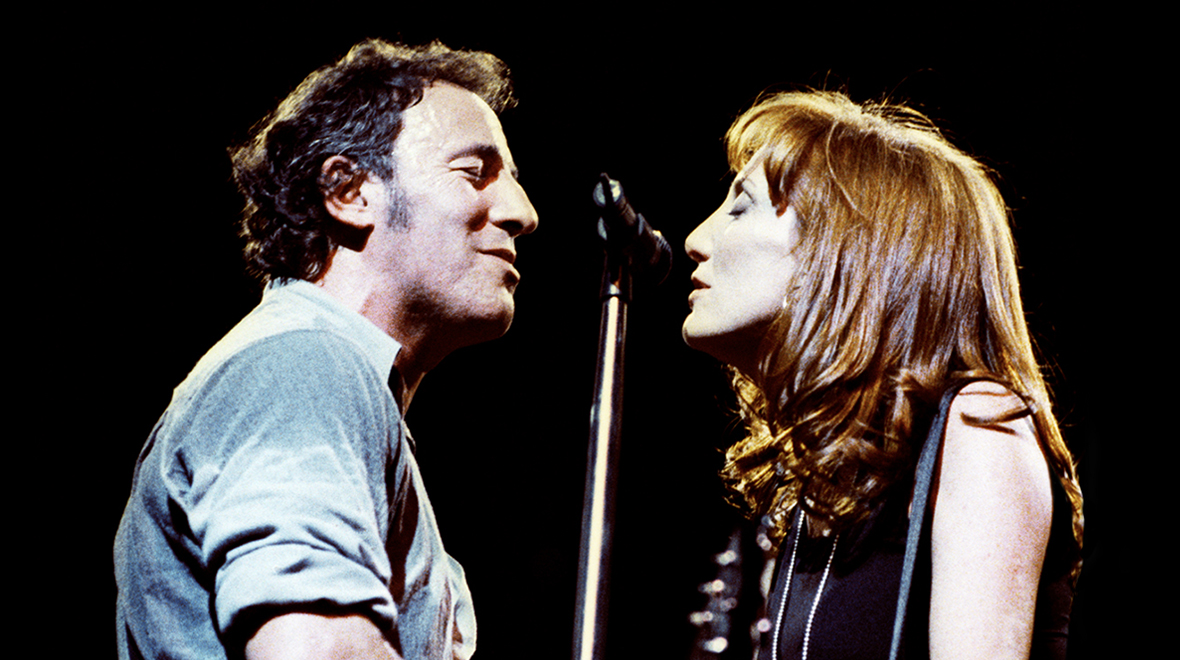
Bruce Springsteen and the E Street Band
By Erik Flannigan
It’s all about moments.
For those of us fortunate enough to have seen many Bruce Springsteen concerts and multiple tours, particular shows stand out for any number of reasons, from the people with whom we attended to favorite songs that made the setlist that night. But the most indelible memories often come down to a special, unexpected moment.
Prior to this show, Bruce hadn’t played “Incident on 57th Street” since December 29, 1980, a gap of nearly 19 years, and a performance that itself proved to be a one-off on the original River tour. Hell, the song only got played five times on the Darkness tour. Three decades later, the Reunion tour became a catalyst for the revival of many dormant classics, none more beloved or longed for than “Incident.”
I can only imagine the tears of joy and quivering chins that sprang forth when Springsteen commenced his sixth and final show in Philadelphia with this magisterial reading of “Incident on 57th Street.” I would have been a puddle, overwhelmed by the caliber of the performance. While he would go on to play the song three additional times on the Reunion tour and revisit it on special occasions ever since, if Philadelphia ‘99 had been the song’s only modern airing, it would be held in the same regard as the officially released one from Nassau ‘80.
Despite a long show the night before at the Spectrum (unfortunately not recorded on multi-track due to the venue change for the rescheduled date), 9/25//‘99 finds Bruce in particularly strong voice. On “Incident,” he finds a connection to those vintage versions, singing with real passion, taking his time and sending the song soaring. The E Street Band is also up to the task, needing but that day’s soundcheck to nail the epic. The performance of “Incident” is not a recreation (listen to the fresh edge on the guitar tone) but a thrilling revival of one of Bruce’s early classics.
Springsteen’s vocal prowess continues and the versions of “The Ties That Bind” and “Prove It All Night” that follow ring particularly true across the board: singing, playing, intention. There are already great Reunion shows in the Archive Series, but Philadelphia ‘99 will sound fresher than you expect, as new details jump forth. For example, Jon Altschiller’s sonorous stereo mix treats us to a fantastic Stevie and Bruce vocal exchange on “Prove It.”
The show’s first half runs from strength to strength, with peak Reunion takes of “Two Hearts,” “Atlantic City” and “Factory.” “Point Blank” arrives with a captivating organ and saxophone intro in what is its first Reunion tour performance released in the Archive Series. “Point Blank” is not a song you think of as a Clarence Clemons showcase, but his textures start the song on an appropriately unsettling note, and later, Steve’s guitar solo is similarly edged.
“Youngstown,” “Murder Incorporated,” “Badlands,” and “Tenth Avenue Freeze-out” (which also bears some tasty fret work from Van Zandt) are strong as they were night after night in 1999, with “Tenth” dropping in on “Red Headed Woman” and a very sweet verse and chorus from The Temptations’ “My Girl.”
The party atmosphere extends with “a little last taste of summer for you,” “Sherry Darling,” another showcase for the musical and vocal chops of the E Street Band who are in collective top form.
The tone shifts movingly with the first full-band performance of “Streets of Philadelphia” in its namesake city. The modern Springsteen masterpiece is beautifully rendered, Van Zandt’s background vocals adding richness.
The evening enters the rarified status of hosting not one but two circa 1973 epics, with “New York City Serenade” (itself only recently revived after a 24-year slumber), delivered in stunning fashion in what might be its strongest ‘99 performance. Each E Streeter wraps themselves in musical glory: Stop it Stevie. Stop it Big Man. Stop it Roy. You’re killing us with your melodic beauty.
The set winds down in largely expected fashion, but Philadelphia ‘99 does add two additional songs to the Reunion tour Archive roster. Clarence Clemons’ great night extends to his most famous saxophone solo in “Jungleland,” which is spot on. I can’t imagine the band has played “Jungleland” better than this in the modern era. The other new addition is the show-closer, “Raise Your Hand,” played as the pure soul classic it is and celebrating the band-fan bond that Philadelphia has offered since the very beginning.
If you’re looking at Philadelphia ‘99 and thinking it is “only” 22 songs long, remember six of those tracks top the ten-minute mark on this night of epic performances. I’ve heard longer Reunion tour shows, but I’ve never heard stronger.